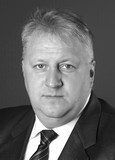Enhancing athletic gymnastics training through the use of artificial intelli-gence
Keywords:
physical education, athletic gymnastics, artificial intelligence, training process, trainer, optimization.Abstract
Objective of the study was to assess the efficacy of AI-powered programs in amateur athletic gymnastics training.
Methods and structure of the study. The research was conducted at the FIFTY GIM fitness center in Moscow. The participants were a woman and a man in their middle age, who regularly engaged in physical exercises. To evaluate the performance of AI-based programs, we proposed the following metrics: body weight and muscle mass were measured using the Omron BF-508 body composition monitor; heart rate and blood pressure were assessed using the Omron automatic tonometer; emotional state was evaluated using the SAN method.
Results and conclusions. During the research, as part of the training with a coach, the indicators of muscle mass increased gradually, unlike when training with AI. The indicator of total body weight also changed in a similar manner. The changes in men's indicators were not as rapid. We can say that no significant changes were observed during the study. However, in his opinion, he preferred classes with AI.
Despite the sophistication of the software, human expertise remains crucial when designing physical education classes in sports. Perhaps a combination of both approaches would be the ideal solution. An experienced professional coach could use AI to clarify certain aspects.
References
Dvorkin L.S. Atleticheskaya gimnastika. Metodika obucheniya. Study guide. Moscow: Yurayt publ., 2024. 148 p.
Egiazaryan A.A., Korolev P.V., Grigoryev V.A. et al. Tsifrovyye tekhnologii v fizicheskom vospitanii studentov: opyt ispolzovaniya mobilnogo prilozheniya. Teoriya i praktika fizicheskoy kultury. 2024. No. 2. pp. 61-63.
Ermakov A.V., Skarzhinskaya E.N., Novoselov M.A. Tsifrovaya transformatsiya professiy v otrasli «Fizicheskaya kultura i sport». Teoriya i praktika fizicheskoy kultury. 2022. No. 3. pp. 6-8.
Zenkova T.A. Tsifrovyye tekhnologii v sportivnoy industrii. Prepodavatel vysshey shkoly v ХХI veke. Proceedings of the International scientific-practical conference. Rostov-on-Don, 2022. pp. 233-238.
Makarova E.V., Zheleznyakova M.V., Cherkasova E.V., Shcherbakova E.E. Programmirovaniye fizkulturno-ozdorovitelnykh zanyatiy aerobikoy so stu-dentkami razlichnogo urovnya fizicheskogo sostoyaniya. Chelovek. Sport. Meditsina. 2023. Vol. 23. No. 4. pp. 102-108.
Petrov P.K. Vozmozhnosti i problemy tsifrovoy transformatsii fizkul-turnogo obrazovaniya i sfery fizicheskoy kultury i sporta. Vestnik Udmurtskogo universiteta. Seriya Filosofiya. Psikhologiya. Pedagogika. 2023. Vol. 33. No. 2. pp. 162-173.
Popova E.A. Ispolzovaniye tsifrovykh tekhnologiy na osnove iskusstvennogo intellekta v podgotovke prepodavateley fizicheskoy kultury obrazovatelnykh organizatsiy. Sovremennaya shkola Rossii. Voprosy moderniza-tsii. 2022. No. 3-1 (40). pp. 156-157.

Additional Files
Published
How to Cite
Issue
Section
License
Copyright (c) 2025 Theory and Practice of Physical Culture

This work is licensed under a Creative Commons Attribution 4.0 International License.
